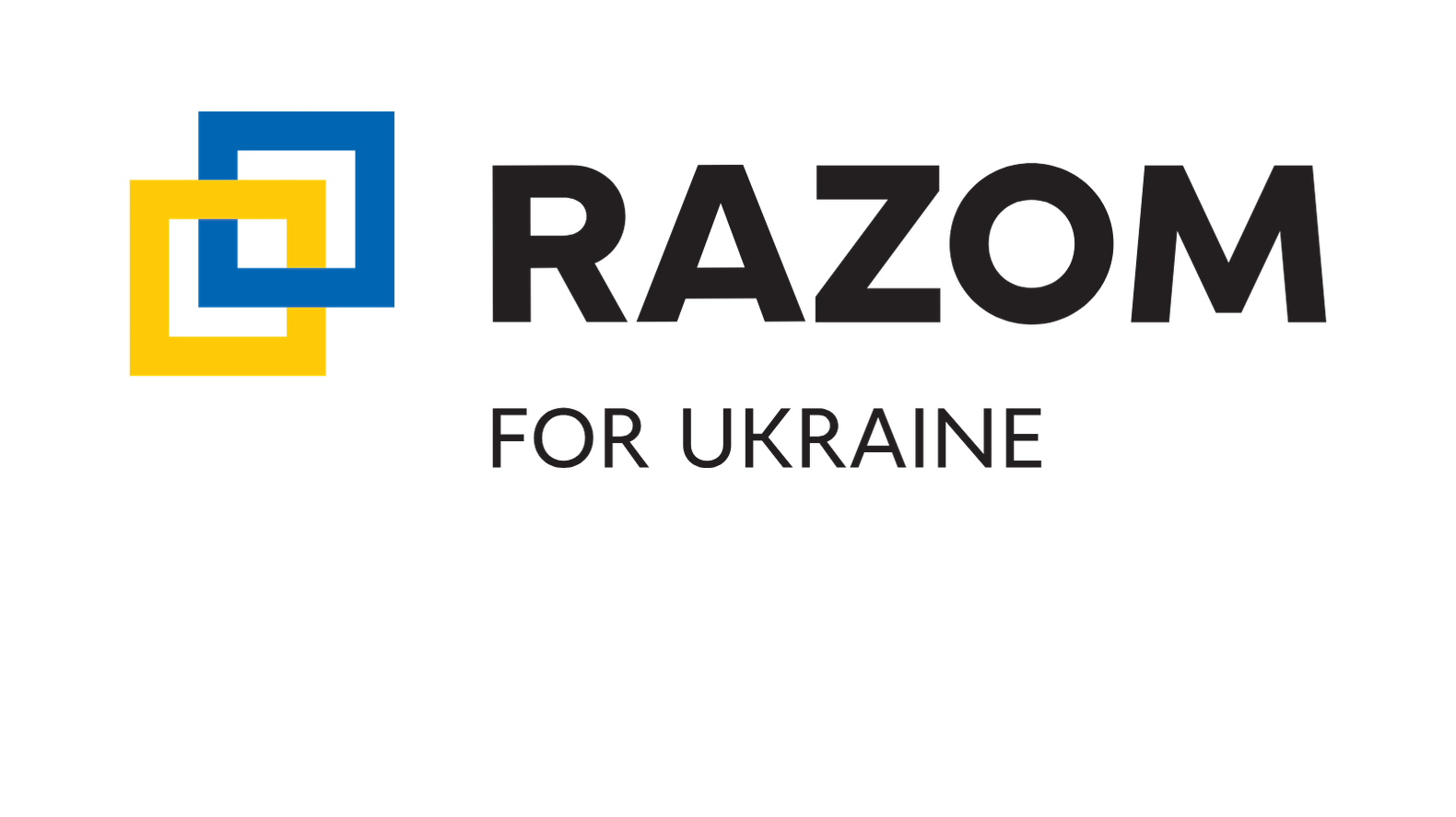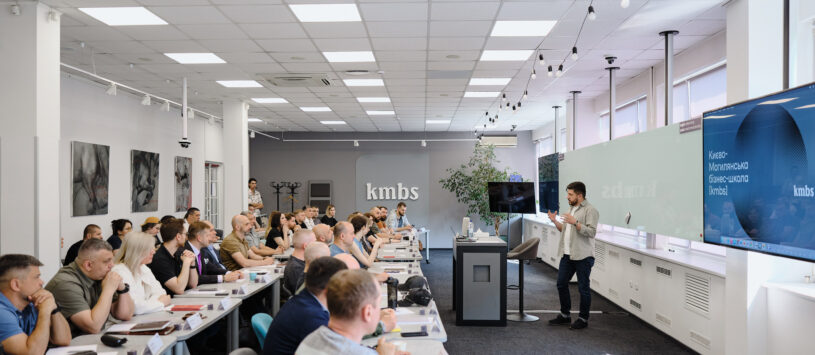In the conditions of a full-scale invasion, when Ukrainian military medicine faces extraordinary challenges, it is the leaders on the ground who keep things together. But is it possible to effectively manage a team, processes, and resources if you have never been taught this? It was this question that began the story of the Mini-MBA – a unique educational program for leaders of medical units of the Security and Defense Forces of Ukraine, created by the Razom for Ukraine Foundation together with kmbs (Kyiv-Mohyla Business School), in partnership with the Department of Health of the Ministry of Defense and the Medical Forces Command of the Armed Forces of Ukraine.

The Mini-MBA emerged not in a “reform laboratory”, but in the reality of the full-scale invasion, where the medical service members work on the edge every day. The reform of military medicine is happening in real time – in the field, amid a shortage of people and resources. Often, the heads of medical services are the people who have no prior management experience, but only sincere motivation.
“Being a doctor, manager, and coordinator is something that no one teaches you anywhere. Especially when every decision matters today,” says Serhiy Savchenko, head of a medical station.
To identify real needs, the Razom for Ukraine team, together with the Medical Forces Command, conducted a survey of over 100 medical unit leaders. It turned out that over 80% of them had never received management training, and 90% felt they were in dire need of such training.
These answers became the basis of the program. The teachers at kmbs relied on them, forming training modules — practical, compact, and focused on a specific result. The competition was high: from more than 150 applications submitted for the first program, 40 of the most motivated participants were selected — those who have influence and are ready to transform their departments.
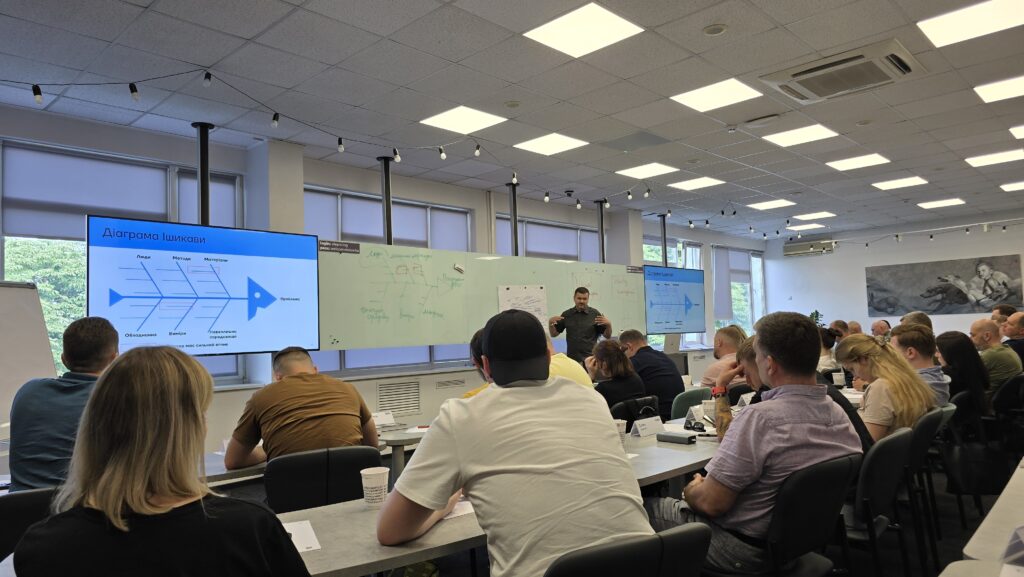
The Mini-MBA covers four strategic areas:
- Leadership and Performance Management – how to build effective teams and think strategically.
- Communication, Trust, and Change – how to build resilience and fairness in a team.
- LEAN Processes – how to eliminate waste in logistics and medical processes.
- Modern Management Skills – from delegation to crisis management.
“After the first few days, for the first time in many years, I drew ‘spaghetti’ – process diagrams – on the walls of my office. The team didn’t understand at first, but they quickly picked up on it,” says Pavlo, head of a medical department. “At home, the children laughed that I had taken all their crayons. And I wanted to work – again.”
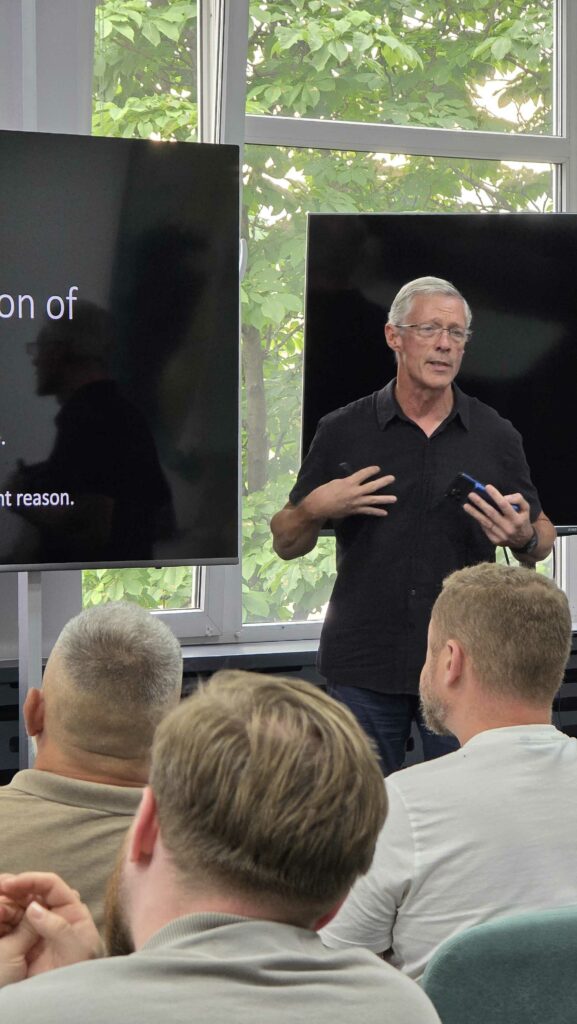
Participants analyze real-life cases – from combat units to adapted international experience. All through the prism of management, leadership, and trust.
The program included those who make dozens of decisions every day, lead teams, and those who are responsible not only for the process, but also for human dignity and life. Many of them, for the first time in their years of service, had the opportunity not only to relax emotionally, but also to look at their work strategically.
“A breath of fresh air is a feeling that accompanied me all the days of training.
The feeling of oxygen, which was so lacking during these more than three years of service. And this increased oxygenation fills the brain with new meanings and a desire for changes that bring us closer to Victory,” shares Igor Artyushenko, head of a brigade’s medical service.
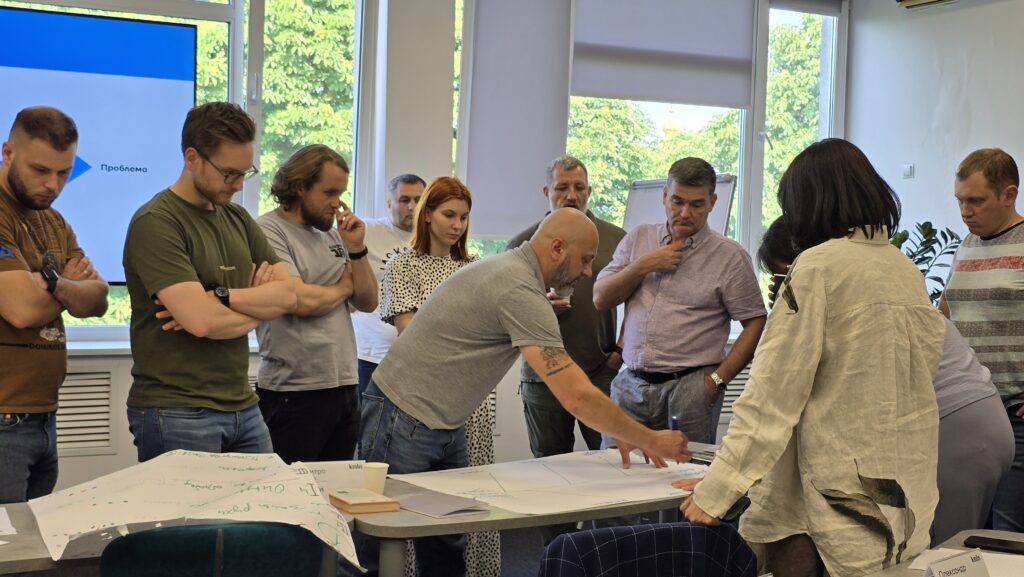
The program included not only classic management modules, but also unique meetings with practitioners who directly shape the culture of medical management at the front. The training involved heads of medical services of forward companies and corps, as well as specialists with experience in real management in combat conditions.
A special highlight was a lecture within the framework of inter-program collaboration with Razom Health, dedicated to planning medical operations in the military sphere. It was given by Michael R. Hetzler – a paramedic, a veteran of the U.S. Special Operations Forces, an expert in military medicine, and a defense strategist who currently heads the NATO initiative for the development of allied medical training. He conducts courses on special operations surgery and modern concepts of combat medicine.
The program also featured a separate lecture dedicated to Lessons Learned approaches in the medical unit system as a tool for analyzing, adapting, and implementing changes based on field experience.
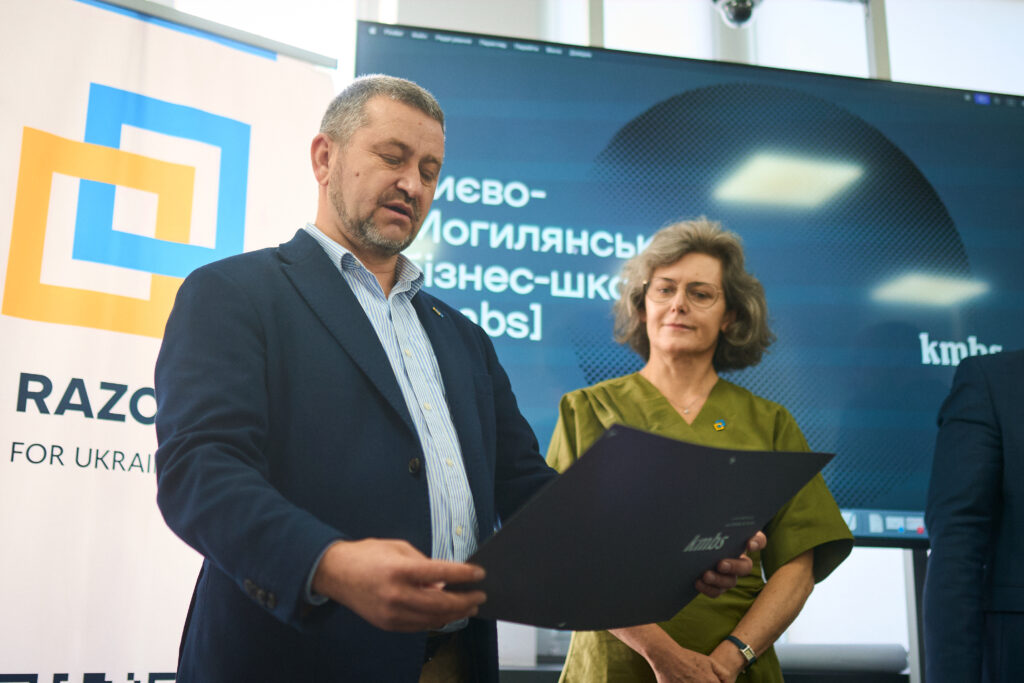
The training did not end with a certificate. Each participant became part of a community that is being formed. They will be able to communicate with each other and continue learning – for this we are also preparing a resource base of lectures that will be available in online format.
“Mini-MBA is an example of how civil society can change systems. We don’t just teach, we create an environment where a new type of leader is born – resilient, thoughtful, open to change,” emphasizes Taras Hatalyak, director of the Razom Heroes program.
This is the first program in Ukraine where management is adapted to the real challenges of the medical system in crisis conditions. The format combines offline modules, online blocks, mentoring, and practice. Training runs parallel to the service – supporting, not distracting.
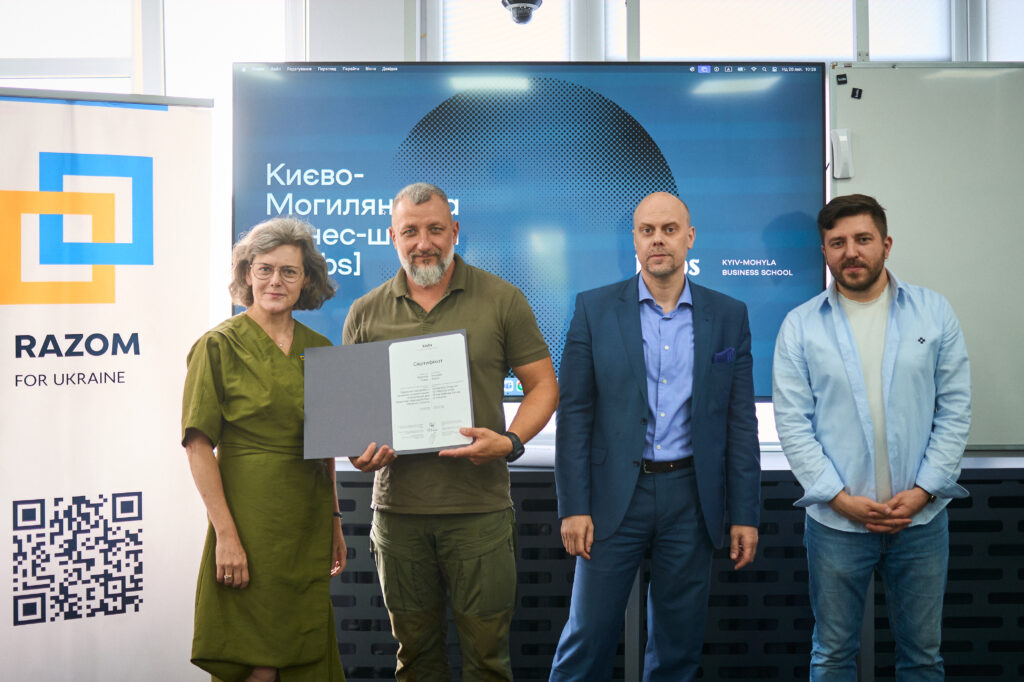
“I started the course as the commander of the battalion medical service, and I am leaving the course as the commander of the brigade medical service. The topic of leadership is very important to me. I see an example of how management works, both in civilian life and in the army. You work with people and you must have a certain knowledge base and skills. Especially when you hold a certain position. To know how to cooperate with these people, how to make management decisions and most importantly how to motivate people so that they want to work with you. This is a very cool, full-fledged program, and all this time everything I did on intuition has been replaced by real knowledge and actions that I am already implementing in my work,” Alina Mikhailova, commander of the brigade medical service, shares after the course.
Mini-MBA is more than an educational project. It is an investment in the people who maintain the system every day. They do not wait for reforms – they become them themselves.
